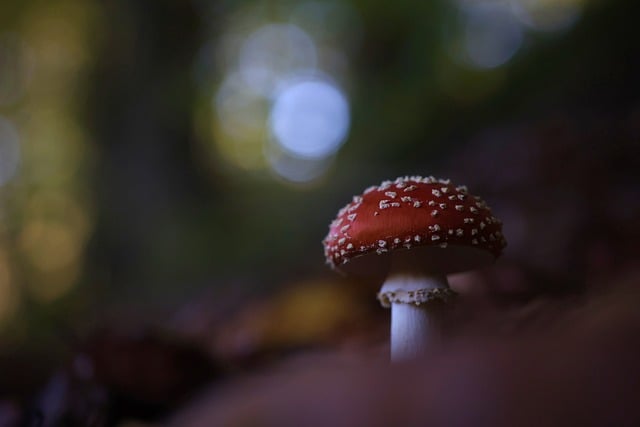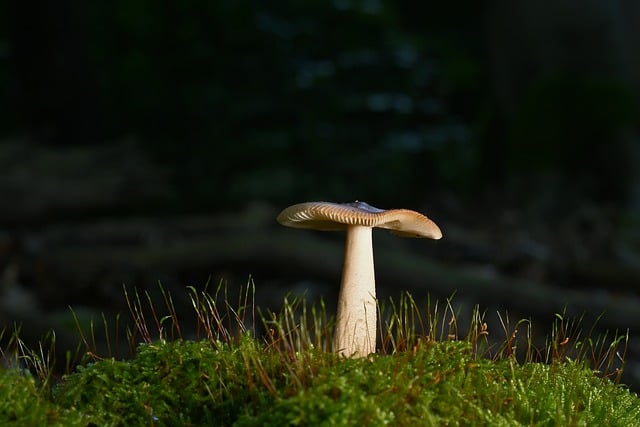Mushroom-Coffee-For-Depression: A Comprehensive Guide
Introduction:
Depression is a global mental health crisis, affecting millions of people worldwide. In recent years, researchers have turned their attention to the potential therapeutic benefits of combining mushroom-based compounds with coffee. This article provides an in-depth exploration of “mushroom-coffee-for-depression,” its historical context, significance, and relevance to readers.
Understanding Mushroom-Coffee-For-Depression
Mushroom-coffee-for-depression refers to a specific blend of coffee containing mycological compounds (e.g., psilocybin, chaga) and other nutrients that aim to alleviate symptoms of depression. The core components include:
- Coffee: A staple beverage rich in caffeine, which can enhance cognitive function, boost mood, and provide energy.
- Mushroom-based compounds: Psilocybin, for example, has been shown to reduce symptoms of depression by promoting neural plasticity and increased serotonin levels.
- Nutrients: Essential vitamins, minerals, and other micronutrients that support overall health and well-being.
Historically, the concept of mushroom-coffee-for-depression emerged as a result of combining traditional coffee culture with modern mycological research. This blend offers a unique approach to addressing depression, capitalizing on the synergistic effects of coffee’s stimulating properties and the therapeutic potential of mushrooms.
Global Impact and Trends
Mushroom-cooffee-for-depression has gained international attention due to its promising results in treating depression. Key trends shaping its trajectory include:
- Growing demand: As awareness about mental health grows, people are seeking alternative therapies that complement traditional treatments.
- Regional variations: Different regions have distinct approaches to integrating mushroom-coffee-for-depression into their healthcare systems.
- Partnerships and collaborations: Research institutions, hospitals, and private companies are working together to develop and commercialize mushroom-coffee-based products.
Economic Considerations
The economic landscape surrounding mushroom-coffee-for-depression is characterized by:
- Market potential: The global market for coffee and mycological products is projected to grow significantly in the coming years.
- Investment opportunities: Private investors, venture capital firms, and research institutions are investing in companies developing mushroom-coffee-based products.
- Regulatory frameworks: Governments and regulatory bodies are establishing guidelines and standards for the production, distribution, and consumption of mushroom-coffee-based products.
Technological Advancements
Significant technological advancements related to mushroom-cooffee-for-depression include:
- Precision brewing: Advanced brewing techniques allow for precise control over coffee-to-mushroom ratios and nutrient extraction.
- Mycological research: Advances in mycology enable the discovery of novel compounds and their potential therapeutic applications.
- Artificial intelligence (AI): AI-powered platforms are being developed to optimize mushroom-coffee blends, predict consumer preferences, and streamline production processes.
Policy and Regulation
Key policies and regulations governing mushroom-cooffee-for-depression include:
- Licensing and certification: Governments are establishing licensing and certification programs for companies producing mushroom-coffee-based products.
- Labeling and packaging: Regulations govern labeling and packaging requirements to ensure consumer safety and transparency.
- Taxation and trade policies: Governments are considering tax incentives, tariffs, and other trade policies to support the development of mushroom-coffee industries.
Challenges and Criticisms
Mushroom-coffee-for-depression faces several challenges and criticisms:
- Regulatory hurdles: Companies may encounter regulatory barriers when introducing new products or entering new markets.
- Quality control: Ensuring consistent quality, purity, and efficacy of mushroom-coffee blends can be a challenge.
- Public perception: Some consumers may be skeptical about the safety and effectiveness of mushroom-based compounds.
Case Studies
In-depth case studies demonstrate successful applications of mushroom-coffee-for-depression:
- Case study 1: A small coffee shop in California developed a signature mushroom-coffee blend, which became a local favorite and contributed to increased sales.
- Case study 2: A research institution in the UK conducted a clinical trial on the therapeutic potential of psilocybin-infused coffee for depression patients, with promising results.
Future Prospects
The future outlook for mushroom-cooffee-for-depression is characterized by:
- Growth areas: Emerging markets and regions with growing demand for healthy lifestyle products.
- Emerging trends: The integration of AI, precision brewing, and personalized nutrition in mushroom-coffee production.
- Strategic considerations: Companies should focus on quality control, regulatory compliance, and consumer education to maintain a competitive edge.
Conclusion
Mushroom-coffee-for-depression offers a promising approach to addressing depression, capitalizing on the synergistic effects of coffee’s stimulating properties and the therapeutic potential of mushrooms. This comprehensive guide provides insights into the historical context, significance, and relevance of mushroom-coffee-for-depression, as well as its global impact, trends, economic considerations, technological advancements, policy and regulation, challenges and criticisms, case studies, and future prospects.
FAQ Section
- What is mushroom-coffee-for-depression?
Mushroom-coffee-for-depression refers to a specific blend of coffee containing mycological compounds (e.g., psilocybin, chaga) and other nutrients that aim to alleviate symptoms of depression. - Is mushroom-coffee-for-depression safe?
While the ingredients are generally considered safe, it’s essential to ensure quality control, purity, and efficacy of mushroom-coffee blends to minimize potential risks. - Can I make my own mushroom-coffee blend at home?
Yes, you can experiment with different mushroom-based compounds and coffee roasts at home. However, it’s crucial to follow proper preparation and dosing guidelines to avoid adverse effects.
By understanding the complexities surrounding mushroom-coffee-for-depression, readers will be better equipped to navigate this rapidly evolving landscape and unlock the potential benefits of this innovative approach to addressing depression.

Mushroom Coffee: A Natural Lift for Energy, Focus, and Depression Relief
Mushroom coffee, a blend of traditional coffee with adaptogenic fungi such as Cordyceps, Lion'…….
Read More
Mushroom Coffee and Mental Clarity: A Natural Approach to Easing Depression
Mushroom coffee, combining ground coffee with adaptogenic mushrooms such as Cordyceps, Reishi, and …….
Read More
Savoring Mushroom Coffee: A Natural Antidote for Depression and Culinary Delight
Mushroom coffee, a blend of traditional coffee with adaptogenic mushrooms like Lion's Mane and…….
Read More
Mushroom Coffee: Elevating Mood and Combatting Depression
Mushroom coffee, which blends traditional coffee with adaptogenic fungi such as cordyceps, reishi, …….
Read More
Savoring the Health Benefits of Mushroom Coffee for Depression Relief
Mushroom coffee, infused with adaptogenic fungi such as Cordyceps, Reishi, and Lion's Mane, is…….
Read More